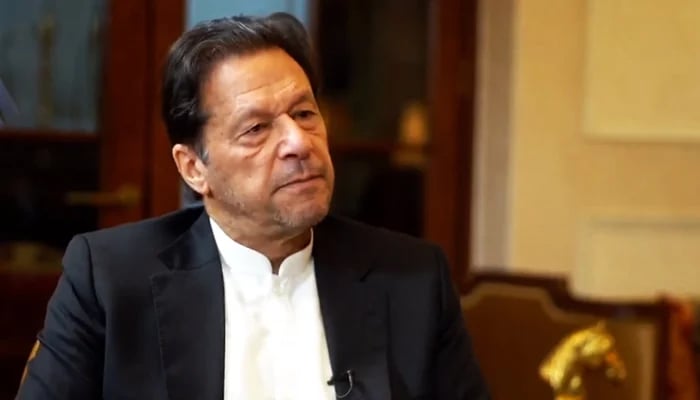
Former Prime Minister and Pakistani Tehreek-e-Insaf (PTI) Chairman Imran Khan’s bid for early elections has turned into a constitutional crisis as uncertainty has arisen over the implementation of the Supreme Court’s order on holding early elections. elections. Bloomberg reported.
Central to the report is Chief Justice of Pakistan (CJP) Umar Ata Bandial, who set the election date for Punjab and Khyber Pakhtunkhwa (KP) provinces after Imran Khan and his allies used their majorities to dissolve the assemblies and build momentum for an early national vote.
Government legislators – belonging to the ruling Pakistan Democratic Movement (PDM), an alliance of 13 political parties – subsequently passed a bill to limit the powers of the supreme court in noticing suo-motu notice – meaning that action is taken according to what the CJP deems is in the best interest of the public.
The bill is now in limbo after being stayed by an eight-member apex court panel last week, a week before it was expected to become law, according to Bloomberg.
In another twist, Judge Bandial ordered the State Bank of Pakistan (SBP) to provide funds to the ECP to conduct the polls after the government refused to make the finances available. Ministers have publicly criticized the court’s decision and said the national elections will take place in October.
According to the report, the constitutional crisis adds to a series of problems plaguing Pakistan since Khan was ousted from power a year ago by Prime Minister Shehbaz Sharif and the alliance of 13 political parties. They have cited the mismanagement of the PTI government’s economic and foreign policy as the main reasons for his ouster.
Prime Minister Shehbaz opposed holding early elections and said the country should focus on reviving an International Monetary Fund (IMF) rescue package and avoiding bankruptcy.
Pakistan’s $350 billion economy continues to dwindle amid financial woes and the delay in a deal with the IMF that would release much-needed funding critical to avoid default risk. The deal with the Washington-based lender will also open up other bilateral and multilateral financing options for Pakistan to bolster its foreign exchange reserves.
Moreover, Imran Khan, on the other hand, is evading police arrests for trials involving terrorism and corruption charges.
The PTI and allies used their combined majorities in Punjab and Khyber Pakhtunkhwa (KP) to disband lawmakers in January, in a bid to push for the early polls.
When the government appeared to be slowing down the election process, Chief Justice Umar Ata Bandial stepped in to hear the case himself, along with a court. The five-member panel of judges directed President Arif Alvi, a member of Khan’s party, to announce an election date set for April 9 for both provinces.
The government said there is no money for local elections given the economic crisis and it was more important to focus on securing the IMF loan. The election authority postponed the polls to October 8, citing funding shortfalls and rising terrorism.
Khan appealed the postponement of the poll and a nine-member bench was set up to consider the matter. Two judges withdrew, while four others dismissed the case.
CJP Bandial along with two other judges ruled that polls should be held in Punjab on 14 May. The government had demanded that a larger panel of judges hear the appeal, which the Chief Justice refused to do.
The Prime Minister Shehbaz-led government was ordered to provide Rs 21 billion to the election organizing body by April 10 to conduct the polls. The government rejected the verdict as a minority opinion and referred the matter to parliament. A separate election appeal in KP is being heard in a provincial court.
It depends on a parliament controlled by the PDM coalition parties. Government lawmakers have passed a non-binding motion barring Prime Minister Shehbaz from releasing funds for the election watchdog and executing orders to hold local elections next month.
At the same time, based on the orders of the Supreme Court, the federal government introduced a money bill seeking parliamentary approval for the allocation of funds for elections. But it was rejected by the parliament’s standing committees.
Government officials such as Interior Minister Rana Sanaullah have suggested they will impose emergency laws. The Center may invoke such laws, citing rising terrorism or an economic crisis as a means to justify postponing elections.
The national vote has been postponed before, most recently in 2007 when then Prime Minister Benazir Bhutto was assassinated.
Khan and his party are pressuring the Election Commission to follow the court order.
With national elections looming, likely in October, Khan is making efforts to improve his relationship with the establishment and the United States. He fell out with both of them after accusing them of conspiring to remove him from power – an allegation they have denied.
#Imran #Khans #bid #rapid #polls #evolving #constitutional #crisis
Source link